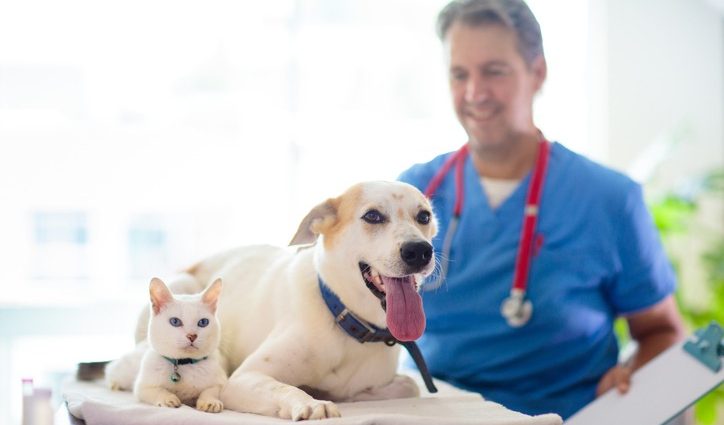Prevention is better than cure, right? Just like in humans, the best way to ensure that our pets live long, healthy lives is by taking proactive preventative care measures. From regular vet check-ups to proper nutrition, there are several key practices that can help keep your furry friend in top shape.
Preventative Care’s Role in Pet Health
So, what role does preventative care play in keeping pets healthy? In simple terms, it stops health problems before they start or catch them early before they become severe. This not only saves you money but also saves your pet from discomfort and severe illness. Preventative care includes regular vet visits, vaccinations, dental care, and nutritional adjustments. These practices are crucial for maintaining a pet’s well-being.
Regular Vet Check-ups
One of the most important elements of preventative care is regular vet check-ups. Just as we visit the doctor for routine check-ups, our pets need regular veterinary visits to monitor their health. During these visits, your vet can catch early signs of illness that you might overlook. For instance, routine blood tests can detect issues such as diabetes or liver disease in their early stages, making treatment far more effective.
Vaccinations
Vaccinations are another cornerstone of preventative care. Vaccines protect pets from a range of diseases, some of which can be fatal. Depending on your pet’s age, health, and lifestyle, your vet will recommend specific vaccinations. For young cats, for example, you might consider kitten vaccinations in Pflugerville to ensure they start life right.
Dental Care
It’s easy to overlook dental care, but it’s a critical aspect of preventative care. Dental disease is common in pets and can lead to more serious health issues like heart disease or kidney damage. Regular teeth cleaning, either at home or by a professional, can prevent plaque buildup and gum disease. Your vet will advise you on the best approach for your pet.
Proper Nutrition
The food you give your pet plays a vital role in its overall health. A balanced diet tailored to your pet’s age, breed, and health condition can prevent various health issues, from obesity to malnutrition. Always consult your vet for nutritional advice tailored for your pet.
Benefits of Preventative Care
Longer Lifespan
One of the most obvious benefits of preventative care is that it can extend your pet’s life. Regular vet visits, timely vaccinations, good dental hygiene, and proper nutrition keep chronic diseases at bay. This means your pet can enjoy more years of good health and happiness.
Better Quality of Life
Preventative care doesn’t just add years to your pet’s life; it also improves the quality of those years. By catching diseases early or preventing them altogether, your pet remains active and happy. A pet in good health is more energetic, playful, and enjoys a better emotional state.
Cost-effective
While regular vet visits and preventative treatments do have costs, they save you money in the long run. Treating a disease in its early stages or preventing it entirely is far less expensive than dealing with advanced health issues. For instance, it’s much cheaper to vaccinate against a disease than to treat it once it has taken hold.
Key Practices for Effective Preventative Care
Routine Vet Visits
Scheduling routine vet visits is perhaps the most critical practice in preventative care. Depending on your pet’s age and health, your vet might recommend annual or bi-annual check-ups. These visits include physical exams, blood tests, and other diagnostics to catch potential issues early. Make these visits a priority in your pet care routine.
Timely Vaccinations
Vaccinations should be administered according to the schedule recommended by your vet. Puppies and kittens typically require a series of shots in their first few months of life, followed by boosters throughout their lifetime. Sticking to this schedule is key to preventing diseases. If you’re unsure about what vaccines your pet needs, consult your vet for advice.
Dental Check-ups
Regular dental check-ups and cleanings are essential. Poor dental health can lead to severe complications, so it’s crucial to keep an eye on your pet’s teeth and gums. Regular brushing and professional cleanings can stave off these issues.
Proper Diet and Exercise
A balanced diet and regular exercise are fundamental to your pet’s health. Your vet can help you choose the right food based on your pet’s specific needs. Keeping your pet active through regular playtime or walks also supports their physical and mental well-being.
Sometimes, despite your best efforts, emergencies do happen. In such cases, having an emergency veterinarian for cats within reach can make all the difference. They provide immediate care for unexpected health crises, ensuring your pet gets the prompt attention they need.
Parasite Prevention
Protecting your pet from parasites like fleas, ticks, and worms is another important aspect of preventative care. These pests can cause a range of health issues, from mild irritation to severe illness. Your vet can recommend the best preventative treatments based on your pet’s lifestyle and environment. Implementing these key practices requires commitment, but the rewards are well worth it.
A healthy pet is a happy one, and there’s no substitute for the peace of mind that comes with knowing you’ve done your best to care for your furry friend. Beyond regular vet visits and preventive measures, boarding your pet in a medical boarding facility when you’re away can be beneficial. If you want to learn more about the advantages of medical boarding, consult your vet for qualified facilities.
Wrapping It Up
Preventative care is your best investment in your pet’s health. Regular vet visits, vaccinations, dental care, proper nutrition, regular exercise, and parasite prevention are all key practices that contribute significantly to your pet’s overall health. These steps not only enhance your pet’s quality of life but also save you money in the long run. By staying proactive, you’re ensuring a long, healthy, and happy life for your furry family member.

